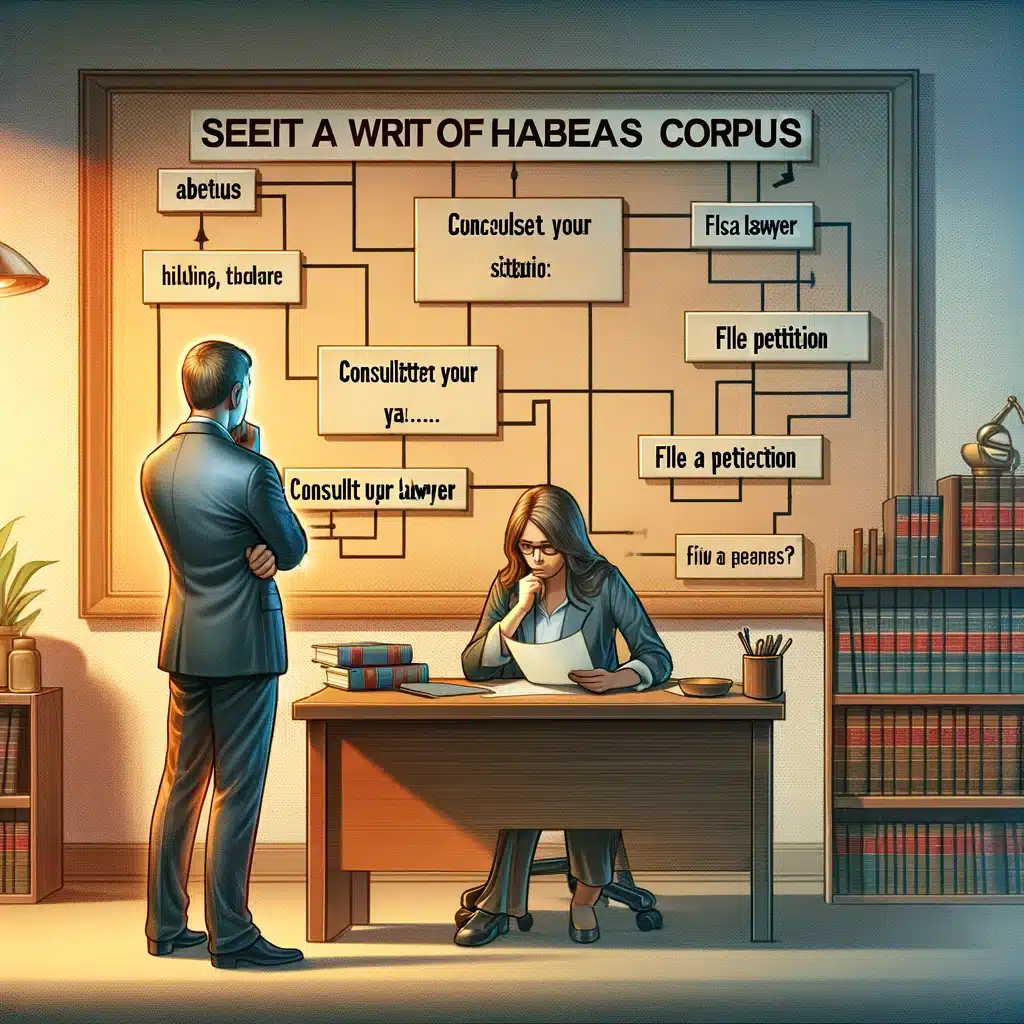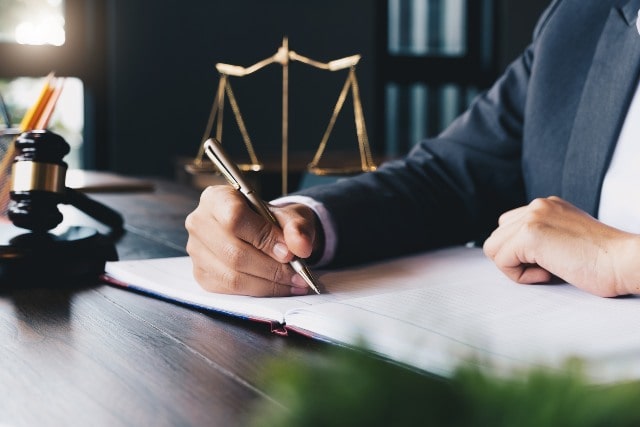Lawful Knowledge on Habeas Corpus: Attorney Services and Assistance
Lawful Knowledge on Habeas Corpus: Attorney Services and Assistance
Blog Article
Recognizing the Duty of a Post-Conviction Attorney in Seeking Justice After a Criminal Conviction
In the complex landscape of post-conviction legal proceedings, the function of a post-conviction lawyer is crucial in navigating the path to justice after a criminal conviction. Beyond the boundaries of a trial, these lawyers participate in a diverse strategy focused on revealing new evidence, tough lawful mistakes, and promoting for their customers' civil liberties. The complexities of post-conviction work require a mix of lawful acumen, investigative abilities, and critical believing to untangle the complexities of a case and seek methods that might have been overlooked or underexplored. As the search of justice expands beyond the confines of first proceedings, the function of a post-conviction lawyer arises as a sign of expect those looking for to remedy oppressions and reclaim their civil liberties within the lawful system.
Post-Conviction Legal representative's Investigative Work
Post-conviction legal representatives participate in meticulous investigative job to reveal brand-new proof, procedural errors, or misconduct that could potentially cause overturning a conviction. This investigative phase is vital in the post-conviction procedure as it aims to identify any kind of overlooked information or lawful mistakes that might have influenced the end result of the first trial. Post-conviction lawyers dig into situation data, witness testaments, and legal documents with a fine-tooth comb, looking for any inconsistencies or abnormalities that can be premises for allure.
With extensive investigation, post-conviction lawyers intend to drop light on possible oppressions that might have occurred throughout the original trial. By inspecting every element of the legal process, post-conviction lawyers work tirelessly to discover any elements that may have influenced the decision.
Crafting Appeals and Petitions
In the pursuit of justice after a conviction, knowledgeable lawyers meticulously craft charms and requests to existing compelling disagreements for the reconsideration of lawful choices. Crafting appeals and petitions needs a deep understanding of the lawful system, attention to detail, and tactical thinking. Post-conviction legal representatives evaluate test documents, recognize possible errors or offenses of rights, and establish lawful disagreements to test the conviction or sentence.
When crafting a charm, attorneys concentrate on highlighting lawful mistakes that may have affected the end result of the instance. They research situation regulation, laws, and lawful precedents to sustain their arguments. Requests, on the other hand, might include offering brand-new proof that was not readily available throughout the test or showing adjustments in the legislation that warrant a testimonial of the conviction.
Moreover, post-conviction attorneys must abide by stringent procedural guidelines and target dates when filing charms and applications. They should present their disagreements plainly and persuasively to convince the court to grant relief to their clients. With thorough crafting of appeals and requests, post-conviction legal representatives aim to protect justice for individuals that have been wrongfully convicted or unfairly punished.

Seeking Post-Conviction Alleviation
Looking for alleviation after a sentence needs a tactical and attentive technique by experienced legal specialists. Post-conviction alleviation includes a series of legal systems created to challenge the validity of a sentence or sentence (arkansas federal lawyer). These methods consist of submitting activities for a new trial, going after charms, looking for writs of habeas corpus, and offering freshly found evidence. Post-conviction attorneys play a vital function in browsing these complex treatments, making certain that all lawful alternatives are discovered to rectify injustices that may have happened throughout the test or sentencing stage.
One common form of post-conviction relief is filing an application for post-conviction relief, usually based on claims of inefficient assistance of advise, prosecutorial misconduct, newly discovered evidence, or constitutional violations. Experienced post-conviction legal representatives possess the abilities and expertise required to determine feasible lawful cases, carry out investigations, and existing compelling debates to safeguard alleviation for their clients.
Utilizing Forensic Proof
When challenging a conviction or sentence, the calculated application of forensic evidence can be a powerful device in post-conviction legal proceedings. Forensic proof incorporates a vast array of clinical strategies utilized to check out criminal activities and develop realities in court. Post-conviction legal representatives can utilize forensic evidence to test the credibility of convictions by offering new clinical findings that were not offered during the original trial.

Participating In Sentence Alterations
Post-conviction attorneys might explore the possibility of sentence adjustments check my source as a lawful avenue to attend to disproportionate or unjust sentences handed down in criminal situations. Sentence alterations include seeking changes to the terms of an offender's sentence after a sentence has actually occurred. These adjustments can consist of reducing the size of a sentence, changing the sort of punishment imposed, or exploring alternate sentencing choices.
Post-conviction legal representatives can seek sentence alterations via different legal devices, such as submitting movements for sentence reduction, appealing for compassionate release, or working out appeal bargains for minimized sentences. They have to meticulously assess the situations of the situation, analyze the legal premises for looking for an alteration, and existing engaging disagreements to the court supporting the requirement for a revised sentence.
Engaging in sentence modifications needs a complete understanding of criminal legislation, sentencing guidelines, and the certain treatments entailed in looking for post-conviction relief. Post-conviction attorneys play a crucial duty in promoting for fair and just end results by challenging sentences that are unduly rough or do not line up with the concepts of justice.
Conclusion
Finally, the function of a post-conviction legal representative is essential in seeking justice after a criminal conviction. Via investigative work, crafting charms and petitions, seeking post-conviction alleviation, using forensic evidence, and involving in sentence modifications, these lawyers play a vital duty in supporting for their clients and making sure that their civil liberties are upheld within the criminal justice system. Their dedication and know-how are crucial in navigating the intricacies of post-conviction procedures and attaining a fair outcome for people encountering criminal convictions.
Report this page